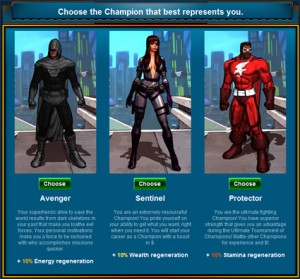Since we were discussing about cyber feminism these past weeks, I found interesting to make a post about this phenomenon which I particularly have noticed that it has been increasing in a website that I frequent a lot.
Many of you have probably heard or even form part of the 9gag community. But for those who don’t “9GAG is the funniest yet simplest platform for you to publish or collect funs”, as the website describes itself. The way this website works is any member can create a post (supposed to be funny) and then submit it. There are 3 categories VOTE, TRENDING and HOT (according to popularity) so the post starts in the VOTE page and the rest of the community votes if it’s funny enough to get to TRENDING and finally HOT.
I first started visiting this website last summer when a friend (female) recommended me; she said it was very funny and quite addictive as well so I decided to take a look. I felt immediately attracted and identified with a lot of the jokes posted on the website and ever since I’ve been frequenting it at least once a day, more or less. At first I couldn’t help noticing that it seemed to be more boys than girls in this community, because there were a lot of male jokes (related with typical problems that boys can experience), posts about women belonging to the kitchen (as a sexist joke), complaining about women or about not having a girlfriend were very popular among the community. Also there were very often posts about how girls on 9gag were just a myth, since it is considered sort of like a “geek” website. This is very interesting because we can see one more time the construction of “masculinity” through technology, as in the articles we read in class, and somehow being geek is more of a boy’s thing, even the stereotype of a “geek” is directly related with men, you would never describe a geek person as a female, even if there are a lot (self-proclaimed even) geek girls.
After a while posts with the picture of a girl and some kind of note (about loving 9gag for
 example) began to appear, as a way to prove that there were, in fact, girls that visited 9gag just as much as boys. The first pictures that appeared were somehow in a sexy way (as we can appreciate in the picture in the right), I can only assume to catch the attention of the voters (mostly men) and get to HOT page. These pictures generated a lot of different reactions among the 9gag male and female users, positive and negative from both sides, but mainly negative as most people thought that was not the place for that kind of post, but instead it should be something funny.
example) began to appear, as a way to prove that there were, in fact, girls that visited 9gag just as much as boys. The first pictures that appeared were somehow in a sexy way (as we can appreciate in the picture in the right), I can only assume to catch the attention of the voters (mostly men) and get to HOT page. These pictures generated a lot of different reactions among the 9gag male and female users, positive and negative from both sides, but mainly negative as most people thought that was not the place for that kind of post, but instead it should be something funny.
However, I believe in a way, this new wave of posts led to more female post start appearing. Posts about usual female problems, funny situations that we all have to go through at some point of our lives, geek girls on the internet being a fact, gamer girls not being a myth (as well), or even posts as a response to very macho-type posts. This was very nice to see because now I could even feel more identified with a lot of the funny posts.
I only thought about this sort of “evolution” on 9gag after we started discussing about cyber feminism, and I can now notice how the internet have changed exponentially in that sense since the last couple of years. So, what do you think the reason is? Do you think maybe girls were always there (in the 9gag case or other similar cases that you know) but just didn’t dear to create post in a sort of very male environment? Or perhaps they were creating posts but just didn’t want to reveal their gender? And if so, why do you think the reason would be for not wanting to reveal their gender?


